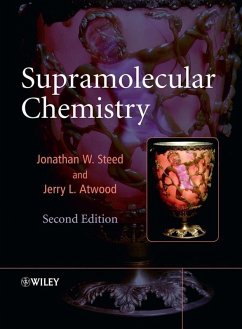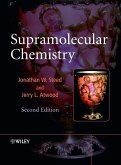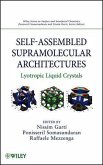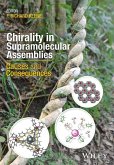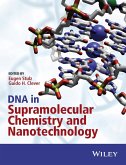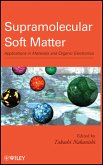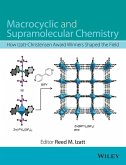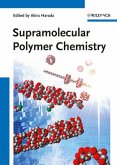Supramolecular chemistry is 'chemistry beyond the molecule' - the chemistry of molecular assemblies and intermolecular bonds. It is one of today's fastest growing disciplines, crossing a range of subjects from biological chemistry to materials science; and from synthesis to spectroscopy. Supramolecular Chemistry is an up-to-date, integrated textbook that tells the newcomer to the field everything they need to know to get started. Assuming little in the way of prior knowledge, the book covers the concepts behind the subject, its breadth, applications and the latest contemporary thinking in the area. It also includes coverage of the more important experimental and instrumental techniques needed by supramolecular chemists. The book has been thoroughly updated for this second edition. In addition to the strengths of the very popular first edition, this comprehensive new version expands coverage into a broad range of emerging areas. Clear explanations of both fundamental and nascent concepts are supplemented by up-to-date coverage of exciting emerging trends in the literature. Numerous examples and problems are included throughout the book. A system of "key references" allows rapid access to the secondary literature, and of course comprehensive primary literature citations are provided. A selection of the topics covered is listed below. * Cation, anion, ion-pair and molecular host-guest chemistry * Crystal engineering * Topological entanglement * Clathrates * Self-assembly * Molecular devices * Dendrimers * Supramolecular polymers * Microfabrication * Nanoparticles * Chemical emergence * Metal-organic frameworks * Gels * Ionic liquids * Supramolecular catalysis * Molecular electronics * Polymorphism * Gas sorption * Anion-pinteractions * Nanochemistry Supramolecular Chemistry is a must for both students new to the field and for experienced researchers wanting to explore the origins and wider context of their work. Review: "At just under 1000 pages, the second edition of Steed and Atwood's Supramolecular Chemistry is the most comprehensive overview of the area available in textbook form...highly recommended." --Chemistry World, August 2009
Dieser Download kann aus rechtlichen Gründen nur mit Rechnungsadresse in A, B, BG, CY, CZ, D, DK, EW, E, FIN, F, GR, HR, H, IRL, I, LT, L, LR, M, NL, PL, P, R, S, SLO, SK ausgeliefert werden.

